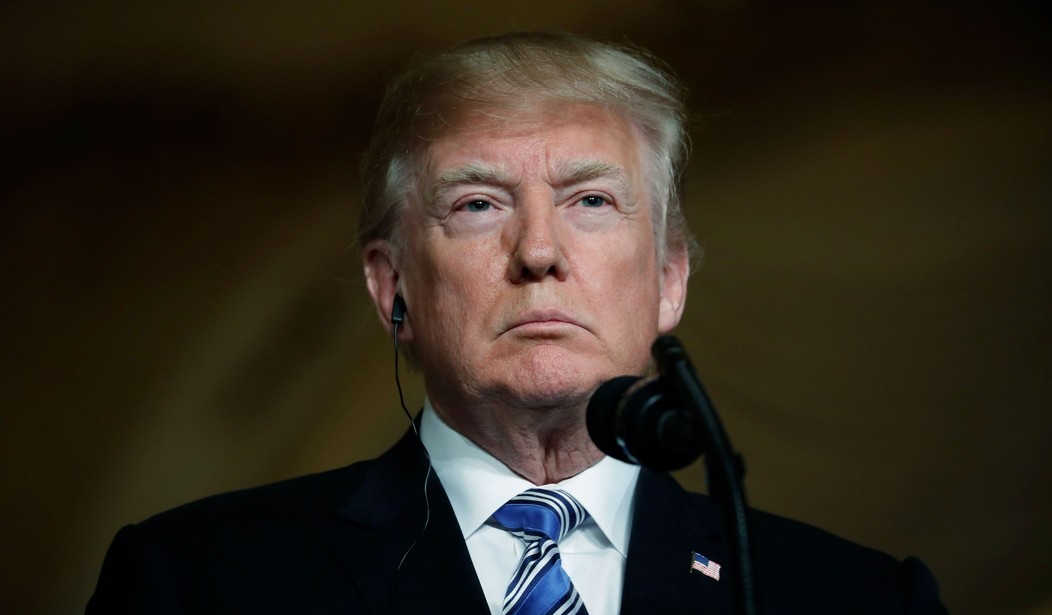President Trump, in a recent tweet, has drawn attention to a pernicious threat against American interests that has persisted for decades: The Organization of the Petroleum Exporting Countries (OPEC) and its alliance with other petrostates as they seek to control the price and supply of oil.
With its stated goal of reducing the world’s oil glut in sight, the cartel and its unofficial members should have spent their meeting in Jeddah discussing an exit plan for this pact. However, with oil at three-year highs and rising, the group has moved the goalpost yet again, with discussions on extending the cuts even further as well as indefinite coordination on oil production with Russia.
Let’s be clear: OPEC has wrapped its actions in rhetoric about stabilizing oil prices to help the global economy. Now that they’ve institutionalized their cooperation with Russia and other states—expanding the group’s market share to include countries that represent 55 percent of daily supply—and whittled down excess oil inventories, they can go about their real agenda: Juicing the books for Saudi Aramco’s pending IPO, and inflating government revenues to support everything from military spending to lavish lifestyles for their ruling elites. Is this how American motorists want to spend their money?
President Trump is right to say this market manipulation is unacceptable. Gasoline prices are also now at their highestin three years, and analysts see them wiping out the benefits of the president’s historic tax cuts as U.S. households will spend $400 moreon average at the pump in 2018 alone. Endemic instability in key oil-producing regions—particularly the Middle East and Venezuela—combined with the reduction of global crude oil inventories from 400 to 43 million barrels mean that there is little to insulate Americans from an oil price spike.
Recommended
Oil dependence is a global problem, but Americans are disproportionately affected. Every year, the United States spends $67.5 billion to ensure the worldwide free flow of oil, as we assume the burden of patrolling oil supply lines and engaging in unstable oil producing regions. Even though this commodity is the lifeblood of the world economy, it is priced on an unfree global market subject to OPEC’s collusion. No matter how much oil we drill at home, we will always be vulnerable to the price spikes and slumps brought about through the actions of countries that don’t share our democratic or free-market principles. As we know, an oil supply disruption anywhere impacts prices everywhere.
In addition to these geopolitical challenges, OPEC’s actions have a very real impact on household budgets. The last time Americans received tax cuts, the benefits were wiped out by oil price spikes. The cumulative impact of the Bush-era tax cuts from 2001 to 2008 increased household income by $1,900, yet household spending on gasoline increased by $2,000 in the same period. Similarly, in 2011, record gasoline prices cost American households an additional $104 billion compared to 2010, offsetting the $108 billion in additional take-home pay from the Obama-era payroll tax cut.
Will we let this happen again?Policy solutions are available, and President Trump can take clear and concrete steps to achieve his goal of energy dominance and mitigate our exposure to OPEC’s behavior. First, we must continue to develop more of our oil resources here at home—the President has already taken steps to achieve this objective. Second, Trump’s EPA must maintain strong fuel economy standards, and use the current rulemaking period to strengthen and modernize fuel efficiency rules that have been effective in saving consumers money for decades. Third, we must encourage the adoption of alternative fuel vehicles running on diverse sources of domestic energy, including electricity, natural gas, and hydrogen. Finally, we must have an honest assessment of our ability to respond to OPEC’s actions to influence oil prices. President Trump can establish an OPEC commission that will investigate how the cartel’s actions undermine American interests and propose solutions to counter their influence.
Following these steps lays a clear path towards the energy dominance that Americans deserve.
Ken Blackwell was a Domestic Policy Advisor to the Trump/Pence Presidential Transition Team. He is a Senior Advisor to Securing America's Future Energy.
























Join the conversation as a VIP Member